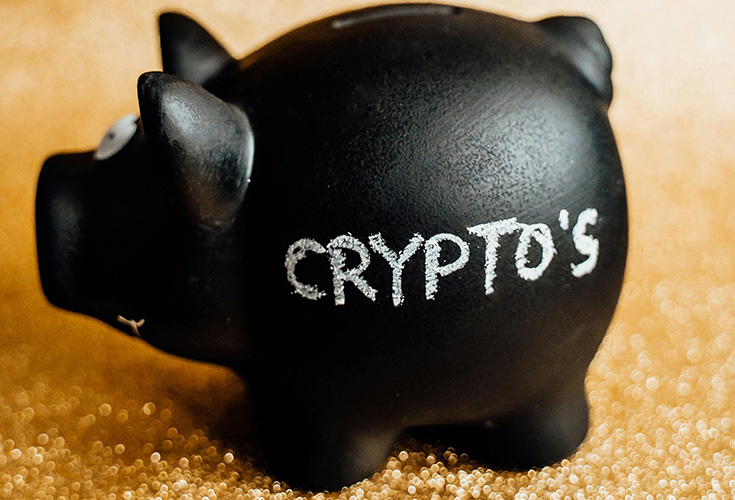
Understanding that getting airdropped tokens is not always a certainty is essential. Keeping up with the current projects has become challenging for investors and traders due to the rising quantity of new crypto. As a result, individual crypto projects employ airdrops to differentiate themselves and increase their visibility. Although receiving free cryptocurrency is appealing, airdrops are not always reliable. Let’s analyze how fake airdrops victimize people and how to avoid becoming prey.
Understanding Crypto Airdrops
The distribution of virtual currency from a cryptocurrency project to numerous wallets is known as an airdrop. To spread the news about the program, coins or tokens will be distributed to current and prospective users. Although some airdrops demand users to complete certain activities before claiming, these tokens are distributed for free. Bitcoin airdrops gained popularity during the ICO craze of 2017, and many cryptocurrency ventures are still using them as a marketing tactic today.
The Purpose Of Crypto Airdrops
Various crypto airdrops exist, but they typically involve dispersing a small quantity of cryptocurrency across multiple wallets, commonly on Ethereum or BNB Smart Chain. Occasionally, projects may also distribute NFTs instead of traditional crypto, albeit less frequently.
Distribution Process
Specific projects may distribute their tokens without any requirements, whereas others may ask you to complete particular tasks before claiming them. These tasks may involve following their social media accounts, subscribing to a newsletter, or holding a minimum amount of coins in their wallet. Yet it’s vital to keep in mind that getting the airdropped tokens isn’t always guaranteed.
Tasks Required For Airdrops
Some projects may offer tokens without any conditions, while others might require you to perform specific tasks before receiving them. These tasks may include following their social media accounts, subscribing to a newsletter, or holding a minimum amount of coins in their wallet. Understanding that getting airdropped tokens is not always a certainty is essential.
Exploring The Purpose And Impact Of Airdrops In Crypto Projects
As mentioned, blockchain projects give out free tokens to gain wider adoption and grow their network. Many people view a higher number of holders as a positive metric that indicates increased decentralization in terms of token ownership within the project. Crypto airdrops also motivate recipients to use and promote the project. This can help cultivate an initial user base before the project lists on crypto exchanges.
On the other hand, airdrops may provide the impression of development. While evaluating adoption, one must consider other factors. For instance, if hundreds of thousands of addresses hold a given token but no one is utilizing it, it indicates that the project has failed to captivate the community or is a hoax.
Understanding The Difference between Crypto Airdrops And ICOs
Although both involve new cryptocurrency projects, Crypto airdrops, and ICOs are distinct concepts. Airdrops do not necessitate participant investment, whereas an ICO is a form of crowdfunding.
The Rise of Initial Coin Offerings (ICOs) in Crypto
The project team starts a token sale during an ICO to attract investors and raise money. Initial coin offers (ICOs) became popular after Ethereum began a crowdfunding campaign to raise funds for its development in 2014. In crypto, the number of new projects using the ICO mechanism increased dramatically in 2017.
Types Of Airdrop
As observed, various methods are available for carrying out a cryptocurrency airdrop. In addition to the conventional airdrop that transfers crypto to multiple wallets, several other types, such as bounty, exclusive, and holder airdrops, are commonly used.
Bounty Airdrop
In a bounty airdrop, users are expected to perform specific actions, such as promoting the project on Twitter, becoming a member of the project’s official Telegram, or generating a post on Instagram and tagging a few friends. To qualify for a bounty airdrop, you must usually submit a form with your wallet address and evidence of your completed tasks.
Exclusive Airdrop
An exclusive airdrop transfers cryptocurrency to certain wallets only. Those with a history with the project, such as early adopters or community leaders, usually get these airdrops.
During September 2020, Uniswap, a decentralized exchange (DEX), distributed 400 UNI to all wallets that had previously interacted with their protocol before a specific date. The UNI tokens serve as governance tokens that allow holders to participate in future decision-making related to project development.
Holder Airdrop
Airdrops by the Holder project involve the distribution of tokens at no cost to individuals with a specific amount of digital currency in their wallets. The project team typically captures a snapshot of users’ crypto holdings at a specified date and time to determine eligibility. If the balance in the wallet meets the minimum threshold, beneficiaries can obtain free tokens based on the number of their holdings at the moment the snapshot was taken.
Numerous recently launched projects distribute tokens to bitcoin (BTC) holders, ether (ETH), or BSC wallets, as these communities are the most extensive in the field. In 2016, for instance, Stellar Lumens (XLM) provided a 3 billion XLM airdrop exclusively to individuals using the Bitcoin network.
Standard Airdrop
Participants were interested in getting an airdrop to register their interest to receive it in a typical crypto airdrop. Individuals must supply a valid wallet address; certain airdrops do not require extra information.
Typical airdrops frequently feature a predetermined number of tokens to distribute and a cap on the number of tickets one person can receive. As a result, certain common airdrops have a deadline. These airdrops may be more challenging to collect even if they are popular owing to their simplicity. Nothing stops a single user from generating many wallets to fast spend the airdrop amount.
Raffle Airdrop
A raffle airdrop can be paired with several of the forms mentioned above of airdrops. A project will frequently declare the number of airdrops it intends to provide and urge people to earn lottery tickets. This ticket can be obtained by holding tokens, accumulating points, or expressing interest.
The organization frequently has to send out more airdrops than there are recipients, which is last but not least. The organizers hold a lottery and grant a random airdrop to a predetermined number of wallets.
Claiming an Airdrop: Steps to Follow
The approach for claiming an airdrop varies depending on the project. However, possessing a cryptocurrency wallet is crucial. MetaMask, which is a user-friendly and popular crypto wallet, is recommended. Afterward, you may verify if your purse has received any free tokens. You may need to engage with a website to obtain the airdrop if there are none.
Don’t Fall For Airdrop Scams: Protect Yourself with These Tips
Airdrops can be a great way to get free tokens and learn about new projects, but scammers are also taking advantage of this popular marketing tactic. Here are some guidelines for avoiding airdrop fraud and safeguarding your cryptocurrency investments.
Do Your Research (DYOR)
Before signing up for any airdrop, research the project’s official website and social media channels. Check if they have a reputable background and a credible team. It’s probably a fraud if you can’t locate any information about the project or if it seems too fantastic.
Beware Of Phishing Attempts
Scammers often create fake airdrop websites, Twitter accounts, and Telegram channels that look like the official ones. Before disclosing your personal information, recheck the links and ensure the source is legitimate.
Set Up A Separate Wallet And Email Address
To avoid phishing attempts, creating a new wallet and email address exclusively for airdrops is a good idea. This way, your personal wallet and email address will remain safe from scams.
Never Share Your Private Keys
Lastly, never give away your private keys or seed phrases to anyone. Legitimate airdrops will never ask for your personal information or funds. If a project asks for these details, it’s likely a scam.
Following these simple steps, you can protect yourself from airdrop scams and secure your crypto assets. Remember, always DYOR, and be cautious when giving out your personal information.








